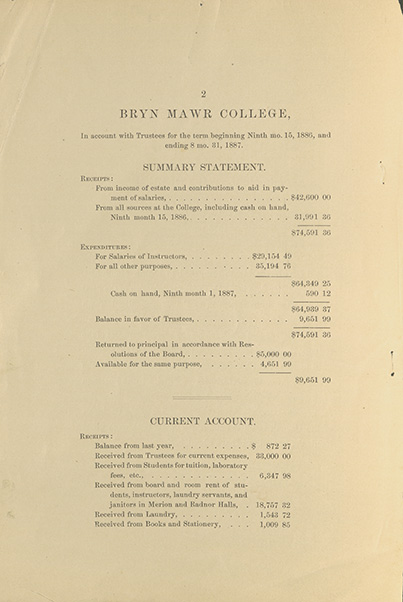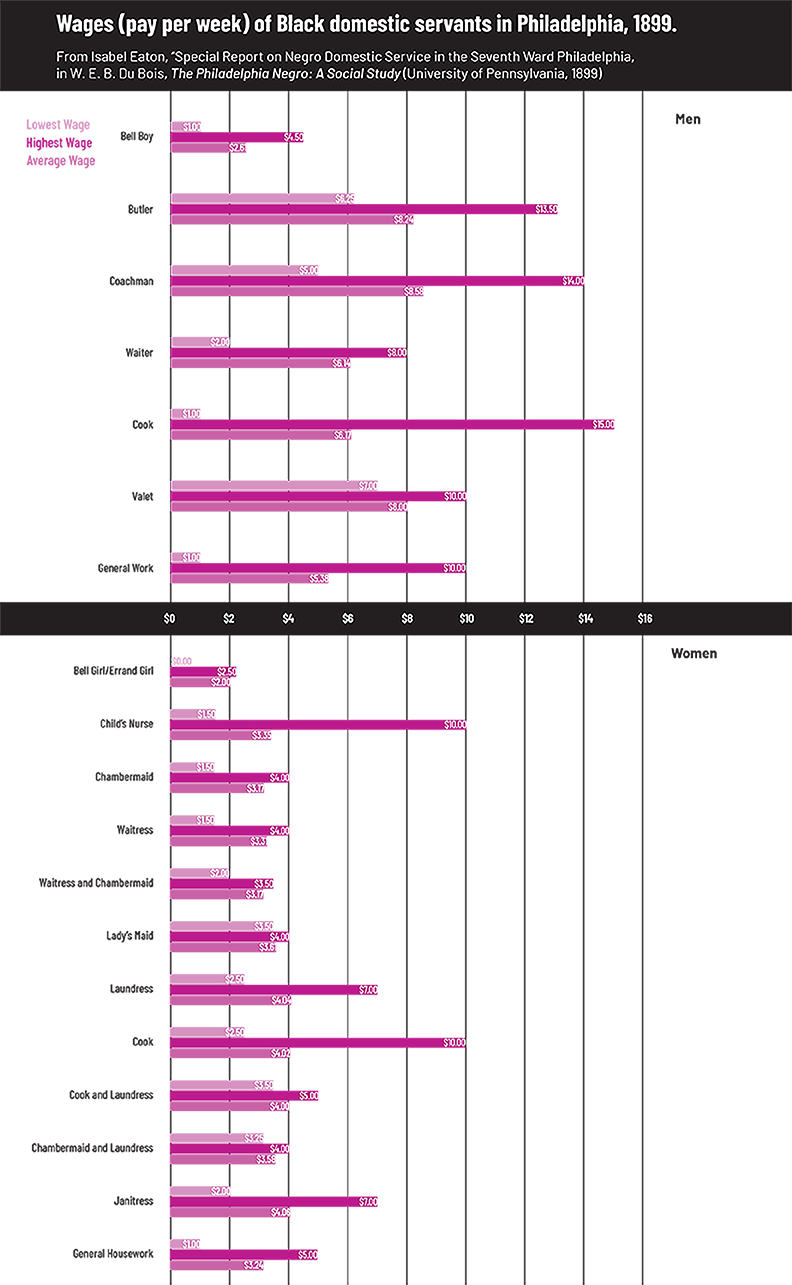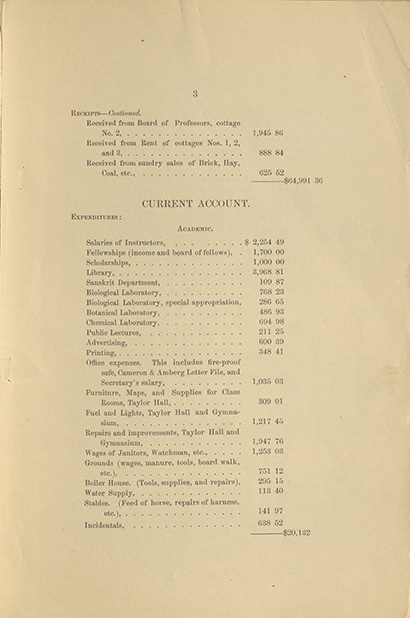The organization of financial records for Bryn Mawr College’s early years does not facilitate detailed study of staff’s wages. In the 1886-1887 financial year, expenditures were grouped into broad categories such as “Grounds,” which includes expenses of “wages, manure, tools and board walk.” By grouping staff alongside material costs, the financial accounts equate them. Faculty salaries, on the other hand, were not consolidated under academic costs, but were placed within the distinct category “instructors.”
This data on the wages of Black domestic staff was collected by the early sociologist Isabel Eaton in the 1890s and published in WEB DuBois’ The Philadelphia Negro (1899). These statistics open a window onto the possible wages of staff at Bryn Mawr by providing a comparable reference from Philadelphia. Eaton’s survey found that over half of the men and women she surveyed provided financial assistance to parents and other dependents. Staff at Bryn Mawr may have similarly worked to support family and community members.

Learn more about the history of Black people’s labor in the early years of Bryn Mawr


